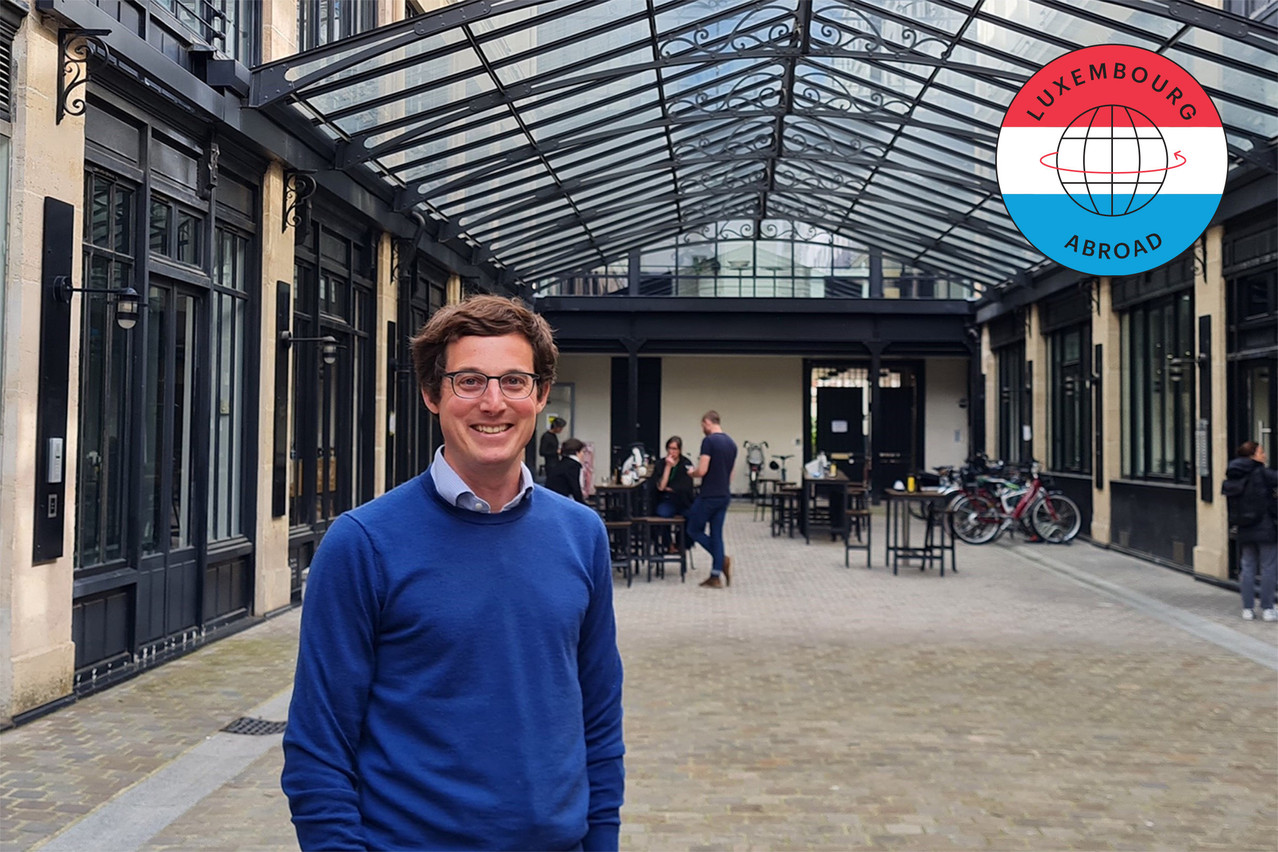“I mean, this is very anecdotal… but something which still blows my mind here in France, every day, is the quality of the food,” says a chuckling Brian Burg, who grew up in Luxembourg and now lives in Paris.
“On the corner of my street they have a market on Wednesday and Saturday. We get all our fresh produce there… at very affordable prices, at a quality I have never experienced before.” For him, it’s the small things: “They make bread in the evening--so when you come home at 7:30pm you can grab a baguette and have it for dinner, and it’s still warm. Their attention to detail on the food aspect…” This sentence trails off into laughter before he adds: “I know it’s a stereotype, but it’s unbelievable. It’s, really--it’s mind-blowing.”
As far as national cuisines go, Burg’s immediate points of comparison are multiple. After finishing secondary school in Luxembourg some two decades ago, he went to Zurich for his studies and then to Boston, where he met his wife, who is French. They settled in Paris in 2017, though speak English to one another (since they met in that language) and also to their children. Regarding the children, English has beat out Luxembourgish so that the whole family can operate in one tongue.
Methods of integration
The French influence on Luxembourg is both deep and obvious, as the two nations’ histories of language, culture and politics are so intertwined. Does that make integration harder or easier?
On this question, Burg cites Luxembourg as an enabler by nature: “Having grown up in Luxembourg, where you obviously have lots of foreigners… you have the sensibility of foreigners integrating into your country.” This--mere exposure to the culture of integration--in turn gave him a leg up, he says, when he went abroad.
In Burg’s case, integration culture was also alive at home: his father is Luxembourgish but his mother is American. “My mom once told me--she immigrated to Luxembourg--she said the best way to integrate into society, culture, whatever is either you have kids or you join a club.” He has gone both routes, he says, and confirms that both are effective.
Indeed, during his PhD at the ETH in Zurich, he joined the running club and later became its president. “I really felt like part of Switzerland.” In France, he has tested the other route: “I have kids here and that’s how I integrate--with the parents of the friends of my kids.”
As of now, it seems that his integration level is pretty high: asked about culture shock or French attitudes towards Luxembourgers, Burg responds not with stories of strange Frenchisms but with frustration at mainstream cultural misconceptions. “The cliché of the French not working couldn’t be more untrue. At least in the environment I’m working in.” False stereotypes cut the other way too, he adds, including the usual lines about income tax in Luxembourg.
Apparently, then, the only French stereotype able to thrive within Burg is the quality of the food, per the discussion above (“surreal” he calls it, when the interview circles back to the topic.)
Professional opportunities
Burg’s combination of expertise is rare; rare enough that staying in Luxembourg probably would have meant a much different professional existence. With a mechanical engineering background spanning a PhD from the ETH (Zurich) and a postdoc at MIT (Boston), his specialisation is in heat transfer and thermodynamics. He worked for IBM on the cooling of their data centres before switching to a project, jointly run by the ETH and the University Hospital, to develop a liver perfusion machine (a machine that can keep a liver alive outside the body).
“They were looking for an engineer who knew how to manipulate fluids,” he says of the latter. “I knew it from water and just applied that to blood, which is similar.” He pauses. “It’s a bit more difficult. But the principles are the same.”
From within the medtech realm, he then ended up at Pixium Vision, which has developed an implant for people who are unable to use their central vision and thus (for example) can’t read anymore. “And we give them back the ability to read,” says the R&D director, adding: “this is something which is completely mind-blowing, still, to me.” To date, close to 50 patients have received the implant.
“In terms of scientific and technological novelty, I mean, there’s just not much which can rival this.”
Reflecting on his education and professional path, Burg speaks highly of his home country and the doors it opened for him, from his time at the well-regarded ETH (“a huge opportunity”) to his postdoc at MIT, which was funded by the Luxembourg National Research Fund (FNR). But he also laments--while admitting that he doesn’t have a solution for it--how the country can support lengthy trajectories like his but not (always) provide jobs interesting enough, within its own borders, for such specialists to come home to.
This is undoubtedly a tricky question, given that the grand duchy will probably never compete with the likes of Paris, whose population of 10m people makes recruiting an entirely different game. For Burg, Luxembourg’s strategy (e.g., in its own burgeoning medtech sector) may have to rely on sparks of luck, after which the government can swoop in with support.
On the subject of support and doors opened, he sums up: “I have fond feelings for Luxembourg.”
